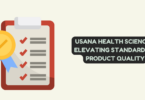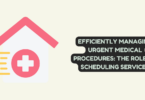
Personal Injury
Personal injuries can occur in various situations, from car accidents to slip and fall incidents or workplace injuries. When faced with such situations, it’s crucial to understand your rights and know when to consult a personal injury attorney. In this article, we’ll explore the ins and outs of personal injury cases, the significance of knowing your rights, and the optimal times to seek professional legal advice.
Navigating the legal landscape can be overwhelming, especially when dealing with personal injuries. Understanding your rights is the first step towards ensuring fair compensation for the damages you’ve suffered. Let’s delve into the key aspects of personal injury cases and the importance of seeking legal counsel.
Common Personal Injury Scenarios
Personal injuries can stem from various scenarios, such as car accidents, slip and fall incidents, or workplace injuries. Each situation requires a unique approach, and knowing how to handle them is vital to securing a favorable outcome.
Knowing Your Rights
As an individual, you have the right to seek compensation for injuries caused by someone else’s negligence. Understanding the nuances of liability and the right to compensation is fundamental to building a strong case.
When to Consult a Personal Injury Attorney
Determining when to seek the guidance of a personal injury attorney depends on factors like the severity of injuries, the complexity of the case, and challenges in dealing with insurance companies. Knowing when to bring in a professional can significantly impact the outcome of your case.
Benefits of Hiring a Personal Injury Attorney
Hiring a personal injury attorney offers numerous benefits, including legal expertise, maximizing compensation, and effective negotiation skills. Their experience in handling similar cases can be invaluable in navigating the legal process.
Navigating the Legal Process
From filing a lawsuit to the trial process, understanding the legal journey is essential. This section will guide you through the steps involved in pursuing a personal injury claim, including the discovery phase and settlement negotiations. When facing the complexities of personal injury cases, many individuals have found reliable guidance and effective legal representation by turning to experienced attorneys, such as lawyer Brad Bernstein for personal injury, whose expertise can make a significant difference in navigating the intricacies of the legal process.
Understanding Compensation
Compensation in personal injury cases goes beyond medical expenses; it includes lost wages and compensation for pain and suffering. Knowing the full scope of what you’re entitled to is crucial for a fair settlement.
Factors Affecting Compensation
When it comes to seeking compensation in personal injury cases, it’s not a one-size-fits-all scenario. Several factors come into play, and understanding these variables is pivotal in managing expectations and ensuring a fair resolution. Let’s delve into two significant factors—comparative negligence and pre-existing conditions—that can impact the amount of compensation you receive.
Comparative Negligence
In the world of personal injury law, the concept of comparative negligence acknowledges that sometimes more than one party may contribute to an accident or injury. This legal doctrine allows for a nuanced assessment of fault and a proportionate allocation of responsibility.
Let’s say you’re involved in a car accident, and it’s determined that the other driver was primarily at fault. However, if it’s also revealed that you were using your phone at the time of the accident, contributing to the severity of the collision, comparative negligence may come into play.
In jurisdictions that follow a comparative negligence model, the compensation you receive can be reduced based on your percentage of fault. For instance, if you’re found to be 20% at fault, your compensation may be reduced by that percentage. Understanding this factor is crucial, as it directly impacts the final amount you’re entitled to receive.
Pre-existing Conditions
Another complex aspect of personal injury cases is the consideration of pre-existing conditions. If you had a medical condition or injury before the accident occurred, it can complicate the assessment of damages. Insurance companies and legal entities often scrutinize whether the current injuries are entirely new or if they exacerbate pre-existing conditions.
For example, if you had a back injury from a previous incident and the recent accident aggravated that condition, determining the extent of compensation becomes intricate. The responsible party may argue that they should not be held entirely liable for damages related to the pre-existing condition.
Understanding how pre-existing conditions factor into the compensation equation is crucial for both plaintiffs and defendants. It requires a thorough examination of medical records, expert opinions, and legal arguments to establish a clear connection between the current injuries and the pre-existing condition.
Why Understanding These Variables Matters
Managing expectations in a personal injury case involves a realistic understanding of how comparative negligence and pre-existing conditions can impact compensation. Being aware of these factors allows you to work closely with your attorney to build a compelling case that considers all relevant elements.
Moreover, during negotiations or legal proceedings, anticipating how these factors might be presented by the opposing party prepares you for potential challenges. It also enables you to present a well-rounded and persuasive argument that advocates for fair compensation, considering the specific circumstances of your case.
Statute of Limitations
The Statute of Limitations serves as a temporal boundary, defining the window of opportunity within which legal action must be initiated. This temporal constraint is in place to ensure that cases are resolved promptly, promote fairness, and preventing undue delays that could compromise the integrity of evidence or witness testimony.
In the context of personal injury cases, the importance of taking timely action cannot be overstated. When you’ve suffered harm due to someone else’s negligence, the clock starts ticking from the moment the injury occurs or is discovered. Failure to initiate legal proceedings within the stipulated timeframe may result in the loss of your right to pursue a claim.
Final Thoughts
In conclusion, understanding your rights and knowing when to consult a personal injury attorney is crucial to navigating the complexities of legal processes. Whether it’s determining liability, negotiating compensation, or choosing the right attorney, being informed empowers you to make the best decisions for your case.






